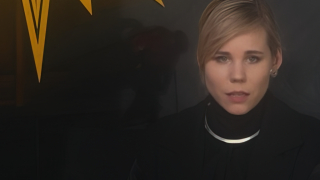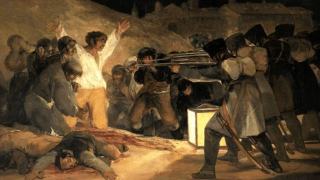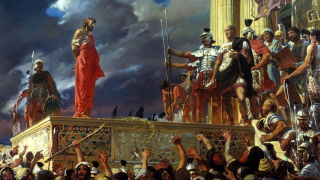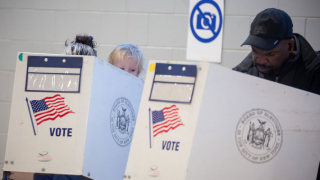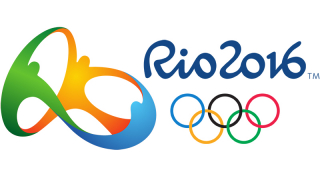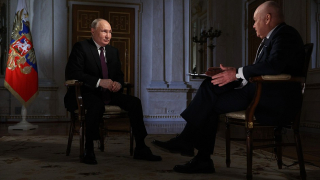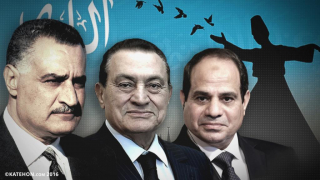Dutch Democracy: a Warning from History
Dedication
- to Dutch parliamentary newcomer ‘Forum for Democracy’,
because another false dawn is too tiresome
The Dutch election results – chart
The following chart allows foreign observers a quick overview of the new Dutch political reality after the elections of 15 March 2017: it shows the power relations in the 150-seat Dutch House of Representatives (Tweede Kamer). The governmental block, still led by PM Mark Rutte (VVD) but now including no less than four parties with a combined majority of only 1 seat, is indicated in bold. The patriotic block, which now includes the Party for Freedom (PVV, led by Geert Wilders) and Forum for Democracy (FVD, led by Thierry Baudet) is indicated in italics.
|
Block |
Seats |
Changes since 2012 |
Party |
Core electorate |
Seats |
Changes since 2012
|
|
Government |
76 |
+ 5 |
VVD |
Liberal-Business |
33 |
- 8 |
|
|
|
|
D66 |
Liberal-Intellectual |
19 |
+ 7 |
|
|
|
|
CDA |
Christian-Democrat |
19 |
+ 6 |
|
|
|
|
CU |
Christian-Left |
5 |
- |
|
Conservatives |
3 |
- |
SGP |
Christian-Conservative |
3 |
- |
|
‘SJWs’ |
49 |
- 12 |
GL |
Left-Green |
14 |
+ 10 |
|
|
|
|
SP |
Socialist |
14 |
- 1 |
|
|
|
|
PVDA |
Social-Democrat |
9 |
- 27 |
|
|
|
|
PVDD |
Animal Rights |
5 |
+ 3 |
|
|
|
|
50PLUS |
Pensioner Rights |
4 |
+ 2 |
|
|
|
|
DENK |
Minority Rights |
3 |
+ 1 |
|
Patriots |
22 |
+ 7 |
PVV |
Libertarian-Populist |
20 |
+ 5 |
|
|
|
|
FVD |
Libertarian-Intellectual |
2 |
+ 2 |
The Dutch election results – commentary
The main results of the elections are as follows:
(1) Despite the government coalition’s narrow majority, it is unlikely to be affected by dissent. The leaders of all three junior coalition partners have opted to take their seats in parliament to enforce internal party discipline. The government can also rely on the ‘faithful opposition’ of the Christian-Conservative SGP, which always puts political stability above political principle.
(2) Following the demographic decline of the ‘Baby Boomers’, the political tendency among native Dutch population is towards a decline of the ‘Social Justice Warrior’ parties. The loss of these parties generally translates into the gain of the patriotic parties.
(3) The native Dutch population is increasingly polarized into two political groups: the wealthy ‘elite’ favours the liberal parties and the marginalized ‘people’ favour the patriotic parties.
(4) The demographic rise of a non-native electorate, accentuated through accelerated ‘immigration’ and ‘naturalization’ procedures, translates into the electoral strengthening of the liberal parties: the non-native electorate now views them as the guarantors of continued non-native privilege.
(5) The decline of the classical ‘SJW’ parties has led some of their non-native supporters to form their own party: DENK. This new party, de facto controlled by the Turkish government, is the first independent non-native parliamentary party in the Western world.
(6) Domestically, the current socio-economic trajectory suggests a general trend to political polarization. On the one hand, the wealthy native elite will combine with the new non-native electorate in supporting the pro-globalist, pro-European, pro-business liberal parties. On the other hand, the marginalized native people will increasingly support the patriotic parties. The simple mathematics of demographic development, however, ‘democratically’ dooms the patriotic cause of the native people.
(7) Internationally, the 2017 elections condemn the Netherlands to continued adherence to the popularly discredited ‘super state’ structures of EU and NATO, exposing the country to continued mass immigration and implicating it in continued globalist agendas. Given the electoral trajectory mentioned under point (6), only a drastic political realignment of its economically and politically dominant neighbour, Germany, can allow the Netherlands to escape from its nearly seventy-year long diplomatic servitude.
Democracy - Dutch style
In a strange way the present Dutch political landscape reflects the challenging Dutch natural landscape, characterized by dangerous tidal sea arms, ever-shifting river beds and uninhabitable marsh lands. Many times throughout history our vulnerable lowland country, taken from the sea by the hard work of our ancestors, has been re-invaded by the sea – this long battle against the elements is the greatest Dutch national epos. But now even greater dangers threaten our land. Never before has the Dutch political landscape been invaded by hostile elements as it has been during the last decennia. Anti-national neo-liberalism has destroyed much of our industries and trades, anti-national secular nihilism has undermined our churches and families, anti-national cultural bolshevism has hijacked our arts and sciences and anti-national multicultural activism has abolished our borders and sovereign rights. The present Dutch political landscape is now splintered in an unprecedented manner - it is now wholly dominated by irrational forces of hyper-democracy.
The only glimmer of hope visible in the wake of the incompetently-fraudulent, foreign-manipulated and journalistically-rigged elections of 15 March 2017 is the meteoric rise of the Forum for Democracy, appearing practically out of nowhere on the parliamentary scene. Nevertheless, Dutch parliamentary history is full of such false dawns – embers of consciousness and resistance in the ashes of the national body politic. Many good political beginnings and many sincere political start-ups have been smothered by organizational infiltration, media manipulation, violent intimidation and good old-fashioned bribery. To the extent that these embers were not snuffed out in their early development, they were slowly choked by the poisonous fumes of parliamentarianism and institutionalization. To the extent that ambitious newcomers are not stopped in their tracks by procedural formalities and bureaucratic resistance, they tend to be eventually co-opted into the Dutch governing elite.
The Forum for Democracy is media-savvy and its two stylish parliamentary representatives have made a good start, but they need to remember the true meaning of ‘parliamentarianism’ and the true nature of ‘democracy’. Concerning ‘parliamentarianism’ they may remember the words of their illustrious rebel predecessor: Ferdinand Domela Nieuwenhuis not only considered all parliaments as inextricably linking the two French words parler and mentir for ‘speaking’ and ‘lying’, but also confirmed that the Dutch parliament was ‘the most disgusting in the civilized world’. Concerning ‘democracy’ they may ponder some words of guidance before they attempt to cross the mudflats of the Dutch political landscape.
Democracy - lessons of Dutch history
First: the tight-fisted, narrow-minded and cold-hearted Pharisees who have banking, trading and scheming in our native land for many centuries, will never voluntarily hand over true power. They will rather cut the dikes, open the sluices and give our land back to the sea, than to hand it over to those that actually want what is good for our people - economic justice, social equilibrium and national honour. They will rather see our land disappear; our people drown and our culture swept away, than to see hand over power to those that actually want what is good for the nation.
Second: the liberal-Capitalist, secular-nihilist and anti-national politicians who have been ‘governing’ our native land for many decades, will never voluntarily hand over the state apparatus - least of all democratically. When their rival is not worn down, corrupted and co-opted, they will simply resort to murder – as in the case of Professor Fortuyn. They will say that it is more ‘convenient that one man die for the people’.
Third: foreign models, resources and auxiliaries - even the most generous and most noble - will not prevail against the stubborn mental diseases bred by the toxic swamp of native ‘democracy’. The fever-ridden swamps of our native land not only became the graveyard of the mighty Spanish Empire, but they also put a full stop to many mighty armies – as happened with the French in 1672, the Russians in 1799 and the British in 1809. Our native swamp of democracy must be drained first.
Let the brave little knights of Forum for Democracy remember that the many will-o’-the-wisps of the Dutch political ‘Dead Marshes’ have led astray greater men than themselves. Brighter lights than theirs have been extinguished in the Dutch political swamp. We wish them all the best in their hazardous quest.
Democracy - a universal roadmap
free after Nicolás Gómez Dávila
The signposts of Democracy:
The word ‘democracy’ never indicates a political fact: it merely indicates a metaphysical perversion.
Life is hierarchic: only death is democratic.
Man can only be free in a hierarchical society,
because it is the only one where he feels the urge to be free.
The shoals of Democracy:
The legitimacy of power does not depend on its origins, but on its goals.
A free society is not a society that has the right to choose its ruler,
but a society that chooses as its ruler the one who has the authentic right to rule.
The number of votes on which a government is based is not the measure of its legitimacy, but rather of its mediocrity.
A democratic parliament is not the place for debate,
but the place where collectivist absolutism issues its proclamations.
It is not worth listening to representatives who do not represent eternal values.
The guides of Democracy:
Slowly by slowly, the library of history transfers the thinkers of democracy
from the political section to the psychiatric section.
There is irredeemable meanness in the proponents of democracy: they are the dedicated accomplices of a phenomenon that kills everything good and beautiful.
Democratic politicians are the condensation of the stupidity of the rabble.
If we see an intelligent man becoming a politician we feel the same as when we see
a beautiful girl becoming a nun.
Advocates of true democracy will sacrifice even their personal interests to their social resentments, but only after they have sacrificed the interests of the people.
The fellow travellers of Democracy:
The rabble never rises up against despotism: it rises up against bad food.
The rabble does not vote for cures, but for anaesthesia.
The rabble is only seduced by prostituted ideas.
The traffic rules of Democracy:
The basic postulate of democracy: the law is the consciousness of the citizen.
Under the aegis of democracy the law is not feared by real criminals,
but only by those that are falsely accused.
The destinations of Democracy:
The democratic society of the future: slavery without masters.
Society becomes a combination of prison and asylum
once the democratic happiness of the citizen becomes the aim of its rulers.
A true political role for the rabble always ends in a hellish apocalypse.
The entrances of Democracy:
Every cultured person has the duty to be intolerant:
tolerance proves the end of authentic culture.
When dialogue is the only way out, the situation is hopeless.
Surrender to the majority only becomes an option once we are out of ammunition.




